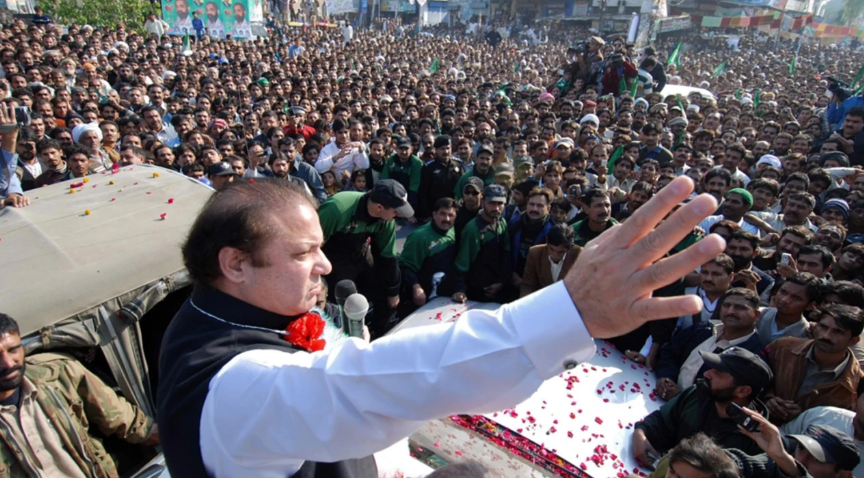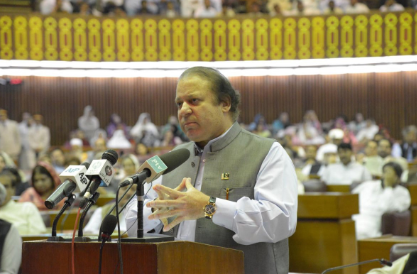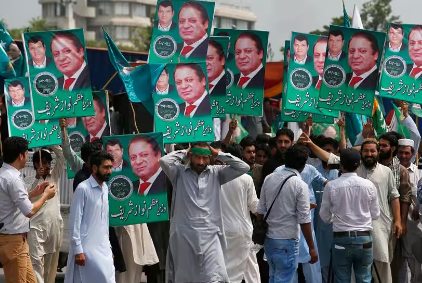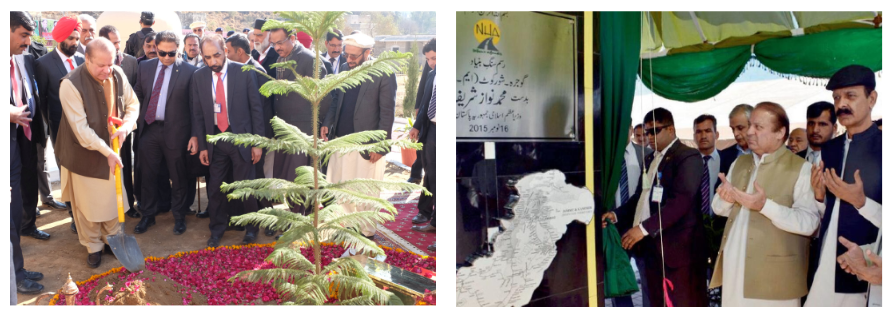After Zuhur prayer, an imam saw a middle-aged man weeping in the corner of his mosque. He approached the man and asked him what was wrong with him. “My daughter has a kidney disease,” the man said. “The doctors say that the only way to save her life is a kidney transplant. My son is willing to donate a kidney, but we can’t afford the surgery.” The imam listened to him compassionately. “Don’t be discouraged,” he said. “Come back for Asar prayer, and God willing, we will find a solution.” After Asar prayer, the girl’s father looked for the imam and saw that he was speaking to a man sitting in the front row and handed him a piece of paper. The man signed the paper and returned it to the imam. With a satisfied smile, the imam called the father over and gave him the paper. “Your daughter’s kidney transplant is now free at this hospital,” he said. The man who signed the paper added, “Your daughter will be perfectly fine. Please tell her to study hard and become one of the best in her field.” The girl’s father could believe neither his eyes nor ears. He was over the moon.
The person who arranged for the free kidney transplant at the Ittefaq Hospital in Lahore was none other than Mian Muhammad Nawaz Sharif. This is one of the countless philanthropic works he and his family have undertaken. If his philanthropic work is documented, it would be difficult to decide whether he is a bigger philanthropist or politician.

His policy approach was a model for the Congress-led Indian government under Narasimha Rao. The then Finance Minister of India, Manmohan Singh, who later became the Prime Minister of India, is credited with India’s development following a similar economic path. Regrettably, a similar outcome did not occur in Pakistan, as Nawaz Sharif resigned from office rather than yielding to non-democratic influences.
If Stanley Wolpert were to write a biography of Mian Nawaz Sharif, he would state: “Few individuals significantly alter the course of their country. Fewer still modify the national culture, founding it on freedom, respect and prosperity. Hardly anyone is penalised for serving the masses, putting the country on the right track, constructing infrastructure, modernising the economy, eradicating terrorism and energy crisis. Nawaz Sharif has achieved all.”
Mian Muhammad Nawaz Sharif was born on 25 December 1949 in Lahore to industrialist Mian Muhammad Sharif and his wife Begum Shamim Akhtar. At the time, the elder Sharif was building his steel empire. He sent his son to one of the best schools in the city, Saint Anthony High School. Nawaz Sharif went on to join the famous Government College Lahore, where he obtained a BA degree and later received a law degree from the University of the Punjab.
After the completion of his education, the young scion joined his family business under the mentorship of his father, who had founded the Ittefaq Group with his brothers in 1939. The young Sharif was often seen as too soft and kind to manage business. The perception was, he would give unprecedented rebates to needy customers. However, he quickly familiarised himself with steel manufacturing and gave useful inputs in the modernisation and upgradation of Ittefaq Group’s industrial operations, which became the pioneer of indigenous manufacturing of heavy agricultural and construction equipment.
Regrettably, in 1972, the Bhutto government, in its nationalization drive, brought the Ittefaq Group, along with other prominent industries of the era, under state control. This move dealt a significant blow not only to the Sharif family but also to the industrial progress of the nation. However, the elder Sharif swiftly rebounded, leveraging his expertise and skills to establish a fresh venture, the Sharif Group, in 1974.
Mian Nawaz Sharif is no doubt a great politician of our times and is revered by Pakistanis and international leaders, especially in the Muslim world.
Mian Nawaz Sharif started his politics from the platform of the Pakistan Muslim League in 1976 to campaign for the privatisation of nationalised industries and to restart the halted industrial development in the country. In 1980, he was appointed as finance minister of Punjab. He fulfilled his promise of privatisation of nationalised industries in Punjab and presented development-oriented budgets, resulting in job creation, raising financial capital, uplifting the standard of living and increasing the purchasing power of the people in Punjab. These steps endeared Nawaz Sharif to the masses, earning him the title ‘Lion of Punjab.’ In 1985, Mian Nawaz Sharif secured a landslide victory in elections and became chief minister of Punjab. As the chief minister, he prioritised welfare and development initiatives as well as the maintenance of law and order. He also expanded the economic infrastructure in Punjab and promoted industry and business.
 In the 1988 elections, he opted to retain his seat in the Punjab Assembly instead of the National Assembly and was re-elected as the chief minister of Punjab. The attempt to remove him from office through a vote of no confidence was defeated by a margin of 152 – 106.
In the 1988 elections, he opted to retain his seat in the Punjab Assembly instead of the National Assembly and was re-elected as the chief minister of Punjab. The attempt to remove him from office through a vote of no confidence was defeated by a margin of 152 – 106.
He implemented an economic strategy centred on privatisation and economic liberalisation to reverse the process of nationalisation, particularly in the case of banks and industries. He also legalised foreign currency exchange through private money exchangers. His privatization policies were subsequently continued by both Benazir Bhutto in the mid-1990s and Shaukat Aziz in the 2000s.
In addition to these economic reforms, he also invested heavily in infrastructure development and spurred the growth of digital telecommunication. Notably, his policy approach was a model for the Congress-led Indian government under Narasimha Rao. The then Finance Minister of India, Manmohan Singh, who later became the Prime Minister of India, is credited with India’s development following a similar economic path. Regrettably, a similar outcome did not occur in Pakistan, as Nawaz Sharif resigned from office rather than yielding to non-democratic influences.
After the 1993 elections, he served as the leader of the opposition in the assembly. Following the removal of the government and the subsequent elections in 1997, Nawaz Sharif made a triumphant return to power, securing an unprecedented two-thirds majority. This resounding victory underscored his popularity and the people’s confidence in his ability to bring about positive change. His second term is notable for carrying out nuclear tests in response to Indian nuclear tests despite substantial international pressure and offers from the world powers. On 30 May 1998, he announced on PTV:
“If [Pakistan] had wanted, she would have conducted nuclear tests 15–20 years ago […] but the abject poverty of the people of the region dissuaded [… Pakistan] from doing so. But the world, instead of putting pressure on [India …] not to take the destructive road […] imposed all kinds of sanctions on [Pakistan] for no fault […] If [Japan] had its own nuclear capability […] Hiroshima and Nagasaki would not have suffered atomic destruction at the hands of the [United States.]”

He was removed from power by General Pervez Musharraf through a military coup and subsequently sent into exile in Saudi Arabia, returning in 2007.
He was re-elected as a prime minister in 2013. His third term was marked by further economic growth and infrastructure development. He also launched a number of social welfare programmes, such as the Prime Minister’s Health Insurance Programme and the Youth Loan Scheme.
Nawaz Sharif served as Prime Minister of Pakistan for three terms: 1990-1993, 1997-1999, and 2013-2017.
First term (1990-1993)
Sharif’s first term was marked by economic growth and liberalisation. He privatised state-owned enterprises and reduced government regulations. He also improved relations with India and the United States. However, his term was marred by political instability.
He launched the National Highway Authority (NHA), which oversaw the construction of thousands of kilometres of new roads and highways. He also improved relations with India and the United States, signing the Lahore Declaration and the Washington Agreement, respectively.
Second term (1997-1999)
He continued to work for economic growth and infrastructure development in his second term. He also pursued a more independent foreign policy, forging stronger ties with China and the Muslim world. Sharif conducted nuclear tests in 1998 in response to India’s nuclear tests earlier that year. This led to a sharp increase in tensions between the two countries and international condemnation.
However, as prime minister, he made efforts to normalise relations with India after Pakistan established nuclear deterrence. His government hosted the historic visit of Indian Prime Minister Atal Bihari Vajpayee to Pakistan. Sharif also launched the Pakistan Poverty Alleviation Fund (PPAF), which provided microfinance loans to poor people.
Third term (2013-2017)
Sharif was re-elected as a prime minister in 2013. He overcame the energy crisis boosting economic growth in a short period. The energy projects completed in this tenure with the latest technology were the cheapest and most efficient in the world at that time.
Sharif launched the China-Pakistan Economic Corridor (CPEC), a multi-billion-dollar development project that is seen as a game-changer for not only Pakistan’s economy but also for the region.
Overall, the three terms of Mian Nawaz Sharif can be described as the best in terms of Pakistan’s development. His foresight and acumen always steered Pakistan out of a crisis, be it financial, energy or security. Since his first term as prime minister in 1990, every mega project was either conceived, initiated, or completed under his prudent leadership.
Mian Nawaz Sharif’s perceptive leadership style enabled him to build a strong team of competent individuals and make judicious decisions for the betterment of the people. He consistently prioritised his country and its citizens.
Often, when many succumb to pressures from non-democratic powers, he remained steadfast in his belief in civilian supremacy. He was imprisoned and exiled for his democratic stances but he refused to compromise on the democratic principles, which only served to enhance his stature.
 He dedicated himself to politics despite enduring significant personal hardships. He couldn’t lay his parents to rest in their homeland, lost his wife while he was unjustly imprisoned, and endured the mental anguish of witnessing the arrest of his beloved daughter. However, he refused to succumb to despair. His health and life were endangered by the adversaries during his imprisonment. They tried to ridicule and belittle him but his firm belief in Almighty Allah and the support of people were the backbone of his resilience. Surprisingly, his daughter, whom his adversaries viewed as a weakness, became a source of strength for him. His brother and nephew also declined to leave him and remained unmoved despite huge pressures.
He dedicated himself to politics despite enduring significant personal hardships. He couldn’t lay his parents to rest in their homeland, lost his wife while he was unjustly imprisoned, and endured the mental anguish of witnessing the arrest of his beloved daughter. However, he refused to succumb to despair. His health and life were endangered by the adversaries during his imprisonment. They tried to ridicule and belittle him but his firm belief in Almighty Allah and the support of people were the backbone of his resilience. Surprisingly, his daughter, whom his adversaries viewed as a weakness, became a source of strength for him. His brother and nephew also declined to leave him and remained unmoved despite huge pressures.
Mian Nawaz Sharif is no doubt a great politician of our times and is revered by Pakistanis and international leaders, especially in the Muslim world. Now that he is returning to Pakistan after almost four years in London for medical treatment, the people of Pakistan yearn to see him re-elected as prime minister of Pakistan for the fourth time.
Team Horizon warmly welcomes our leader back and extends our best wishes to the architect of modern Pakistan.
The writer is a former member of the Punjab Assembly and provincial minister for school education.








